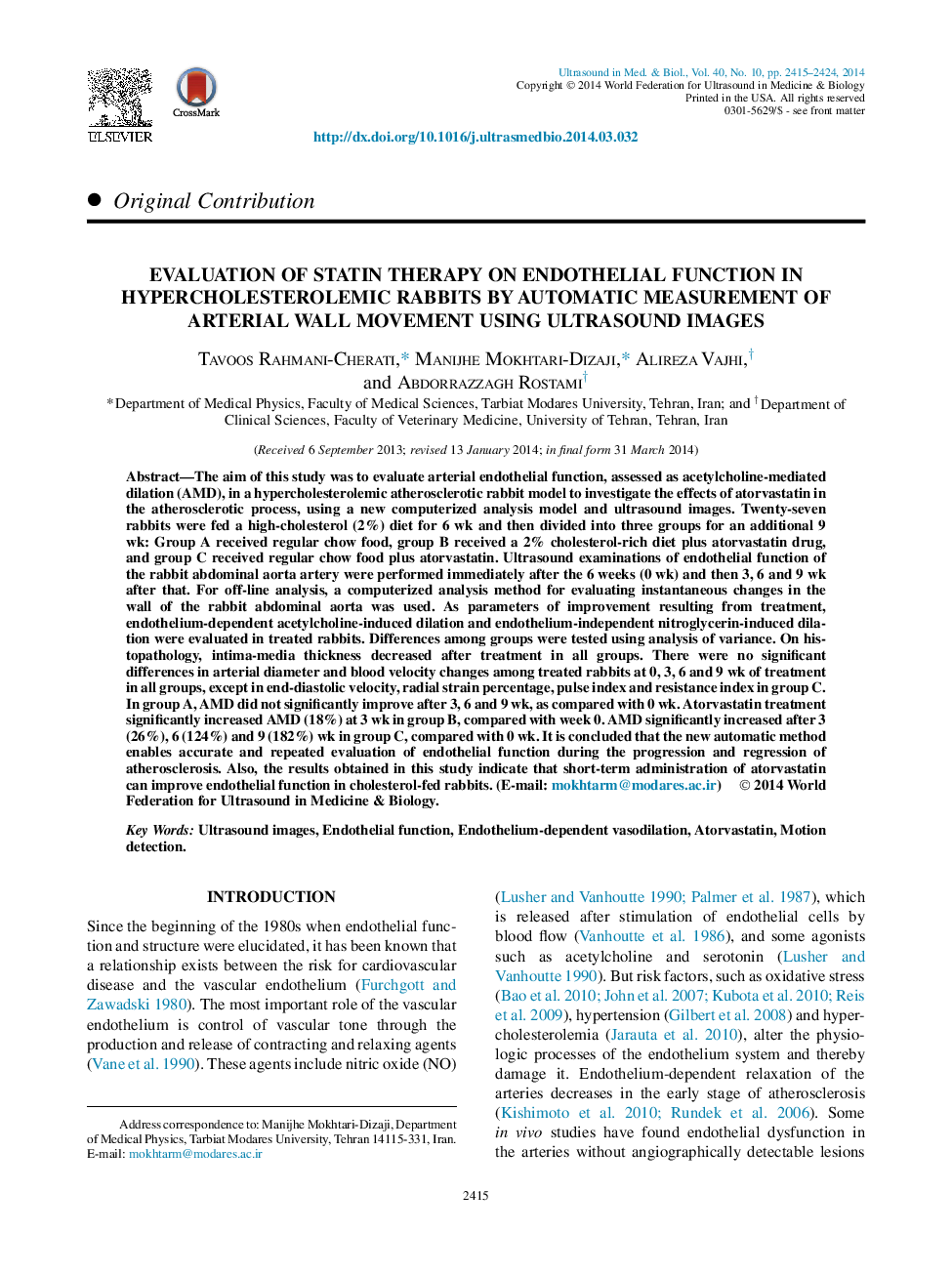| Article ID | Journal | Published Year | Pages | File Type |
|---|---|---|---|---|
| 10691566 | Ultrasound in Medicine & Biology | 2014 | 10 Pages |
Abstract
The aim of this study was to evaluate arterial endothelial function, assessed as acetylcholine-mediated dilation (AMD), in a hypercholesterolemic atherosclerotic rabbit model to investigate the effects of atorvastatin in the atherosclerotic process, using a new computerized analysis model and ultrasound images. Twenty-seven rabbits were fed a high-cholesterol (2%) diet for 6 wk and then divided into three groups for an additional 9 wk: Group A received regular chow food, group B received a 2% cholesterol-rich diet plus atorvastatin drug, and group C received regular chow food plus atorvastatin. Ultrasound examinations of endothelial function of the rabbit abdominal aorta artery were performed immediately after the 6 weeks (0 wk) and then 3, 6 and 9 wk after that. For off-line analysis, a computerized analysis method for evaluating instantaneous changes in the wall of the rabbit abdominal aorta was used. As parameters of improvement resulting from treatment, endothelium-dependent acetylcholine-induced dilation and endothelium-independent nitroglycerin-induced dilation were evaluated in treated rabbits. Differences among groups were tested using analysis of variance. On histopathology, intima-media thickness decreased after treatment in all groups. There were no significant differences in arterial diameter and blood velocity changes among treated rabbits at 0, 3, 6 and 9 wk of treatment in all groups, except in end-diastolic velocity, radial strain percentage, pulse index and resistance index in group C. In group A, AMD did not significantly improve after 3, 6 and 9 wk, as compared with 0 wk. Atorvastatin treatment significantly increased AMD (18%) at 3 wk in group B, compared with week 0. AMD significantly increased after 3 (26%), 6 (124%) and 9 (182%) wk in group C, compared with 0 wk. It is concluded that the new automatic method enables accurate and repeated evaluation of endothelial function during the progression and regression of atherosclerosis. Also, the results obtained in this study indicate that short-term administration of atorvastatin can improve endothelial function in cholesterol-fed rabbits.
Keywords
Related Topics
Physical Sciences and Engineering
Physics and Astronomy
Acoustics and Ultrasonics
Authors
Tavoos Rahmani-Cherati, Manijhe Mokhtari-Dizaji, Alireza Vajhi, Abdorrazzagh Rostami,
